Johnson shares her story on how she began her career, the challenges she has faced and the rewards of being an instructor
Leesburg, Va.—The National Institute for Automotive Service Excellence occasionally profiles one of its ASE Certified professionals. Interested in sharing your story with ASE? Send an email with your contact information to marketing@ase.com.
Career as an auto technician and instructor
Julia worked three years in the automotive repair trades before joining the Skyline College faculty where she is tenured faculty in the Automotive Technology department. She teaches the Engine Repair and Rebuilding class as well as teaching and coordinating the Entry Level Tech program.
Career challenges
Julia did not take any automotive classes in high school. “I always wanted to know how to work on cars, but in my high school, you had to drop out and enroll in the Vo-Tech classes. I didn’t want to commit to that in high school because, you know, girls weren’t really invited to the automotive industry back then in the 1980s. I tried learning from my dad in the driveway, but that always resulted in handing tools and holding flashlights. I was never able to learn that way. Watching someone else is not the same as learning.”
Attending trade school
Years later, after Julia’s youngest child was in preschool, she received a catalog in the mail from Skyline College in San Bruno, Calif. When she dropped it on the table, it opened to the automotive classes. “When I saw the auto pages, I thought, ‘You know, I really would like to do this,’ and I took my first class at Skyline. It was a weekend class where you worked on your own vehicle. I brought my 1964 Ford Galaxy, and I was like, ‘OK, show me how!'” After that first class, Julia said she was hooked. She was accepted to the full-time auto program and graduated in 2007.
Preparing for work in the real world
The automotive program at Skyline provided Julia with a a solid understanding of the fundamentals and theory of repair. However, she said the auto program lacked a basic skills class and she felt unprepared for her first job in a shop. She found herself having to learn the skills while being expected to complete the work correctly and within the time limits, like an experienced tech. Julia said of this first job, “I got thrown in the deep end. I didn’t get just thrown in the deep end — I got taken out in a boat, a mile off shore and chucked in the ocean.”
Specific challenges she faced as a female working in an industry where 98 percent of the techs are male
Julia said she learned quickly that there was a distinct difference in the way men and women communicate. She said she learned that if she responded to a question hesitantly that her coworkers thought she didn’t know what she was doing. Even if she did have the correct answer. Julia said she learned that men equate confidence with competence.
She dealt with those differences in communication by watching her colleagues and responding like they would — with confidence in her work and in herself. It worked. “Confidence is key! Present yourself like you know what you’re doing and you’re proud of your work. Don’t sell yourself short. Women often are hesitant to present themselves this way, but it is necessary to get along and get ahead in the automotive world.”
Career as a shop technician
Julia worked at several different shops. The first was a family-owned independent shop that performed general automotive for fleet accounts, working on Ford F-350s, plumber vans, locksmith trucks and other big vehicles. She also worked at a high-end European repair shop with Aston Martins, Bentleys, and old Rolls Royces, as well as late model BMWs, Mercedes-Benzs and Porches. “That was an exciting experience which allowed me to hone my skills. My first job on my first day was diagnosing a no-start on a 1979 Jaguar. I learned so much at that shop!” She added that she also worked for a rental car shop “busting out tires” and doing oil changes on hundreds of cars in their fleet.
ASE Certifications
Julia has almost all her certifications, except Air Conditioning and Manual Transmission. She also has the L1: Advanced Engine Performance Specialist certification.
Do you feel ASE Certifications are important to have and maintain?
“Absolutely! ASE certifications are the gold standard in our industry and it’s the only certifying body in our field. These certifications are the way you show that you possess a superior understanding of the vehicles. I always tell my students that their employer may not require ASEs to get hired, but you will be expected to earn them if you want to advance in your career and earn wage increases.”
What are your words of wisdom for a new auto technician who is discouraged?
“Just remember, even when you get into the industry, you will always to be learning. You’re never going to know everything. Nobody knows everything. Even the people who have been in the industry for 30 years are still learning. So don’t feel bad because you don’t know everything. You will get there. Just take every opportunity to learn more — read articles, go to seminars, complete online training for your employer, earn your ASEs and go to school. And don’t be hard on yourself — everyone makes mistakes. Sometimes they’re spectacular failures — in front of the boss, your coworkers, the customers … Ask me how I know!”
What do you enjoy most about being an instructor?
“I love being able to help young people gain skills to begin fabulous careers. I love helping them find a direction in life and pursue it with confidence. I especially enjoy watching them learn and grow over the course of the program. It’s the best job I could ever have.”

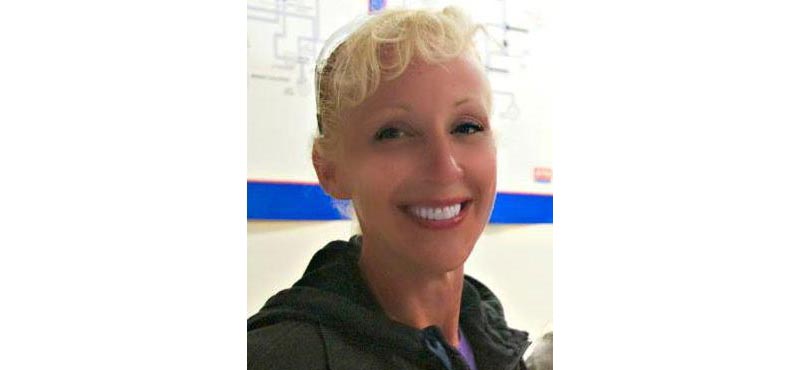

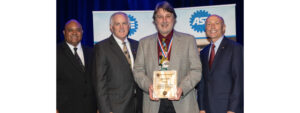
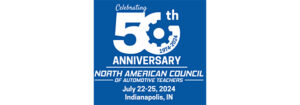



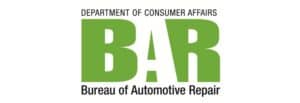
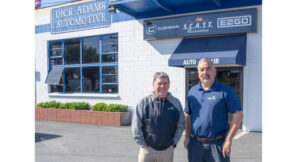
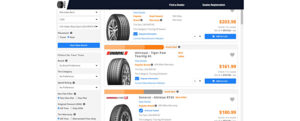
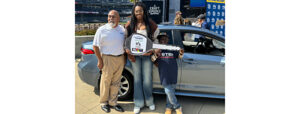

Comments are closed.